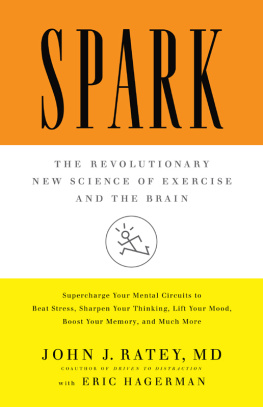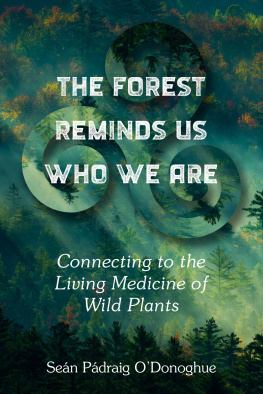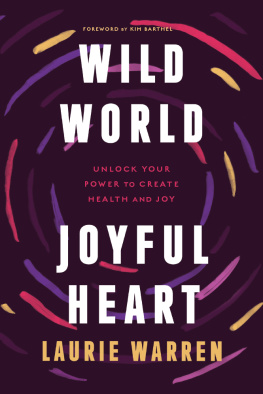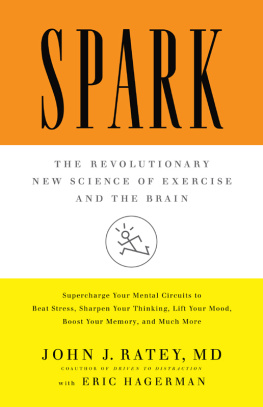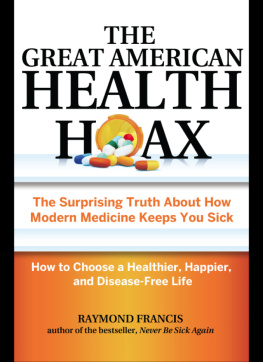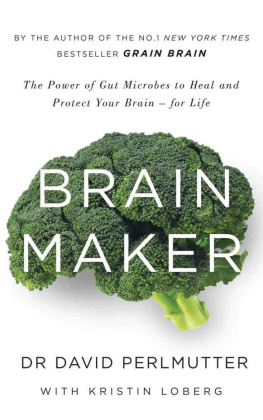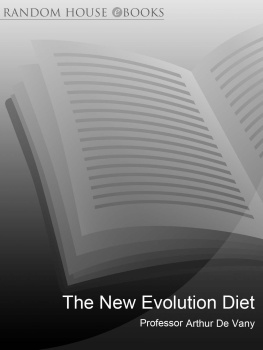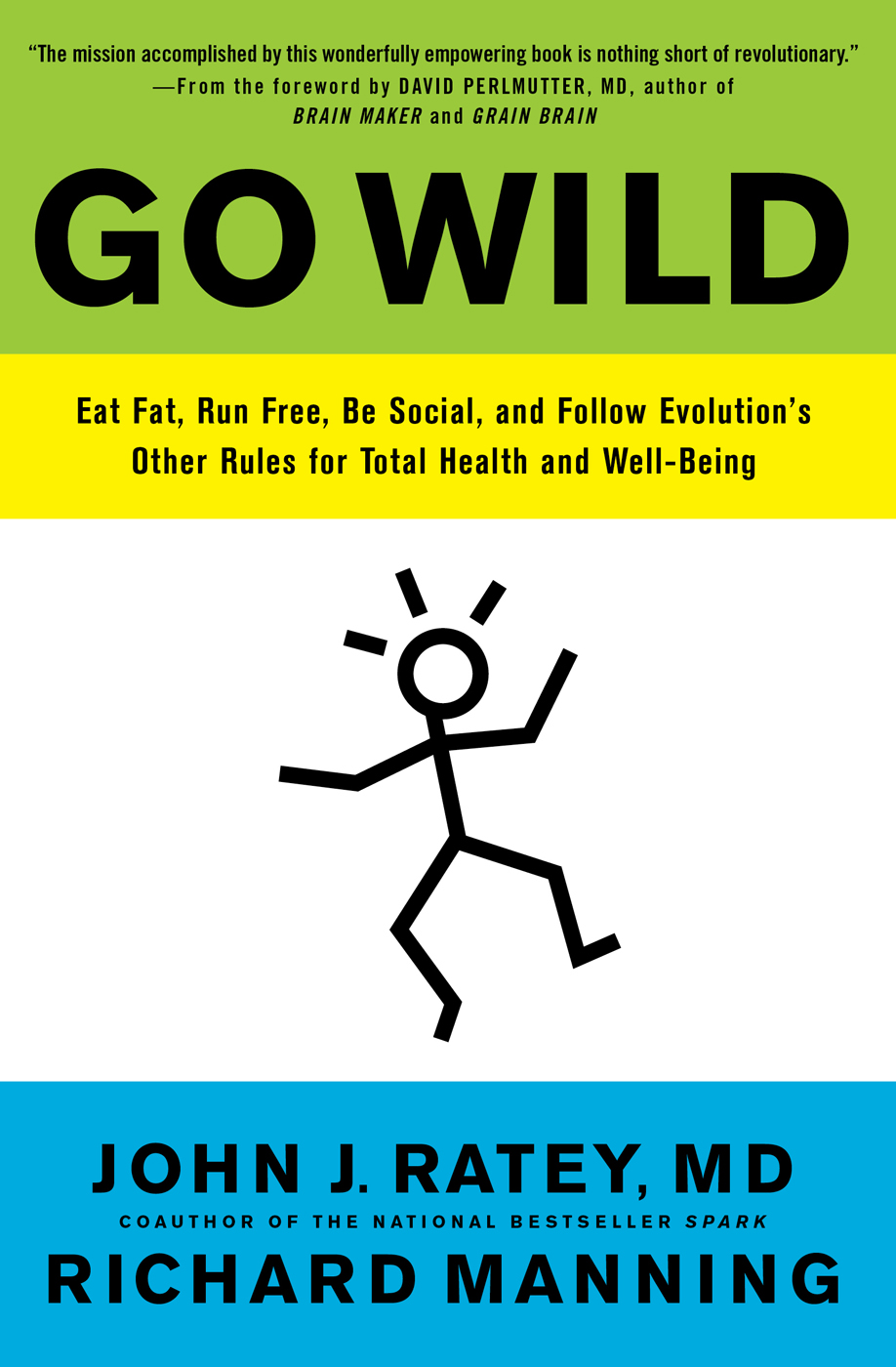Thank you for buying this ebook, published by HachetteDigital.
To receive special offers, bonus content, and news about ourlatest ebooks and apps, sign up for our newsletters.
This book is intended to supplement, not replace, the advice of a trained health professional. If you know or suspect that you have a health problem, you should consult a health professional. The authors and publisher specifically disclaim any liability, loss, or risk, personal or otherwise, that is incurred as a consequence, directly or indirectly, of the use and application of any of the contents of this book.
Copyright 2014 by John J. Ratey, MD, and Richard Manning
Foreword copyright 2014 by David Perlmutter, MD
Cover design and illustration by Kapo Ng
Cover copyright 2015 by Hachette Book Group, Inc.
All rights reserved. In accordance with the U.S. Copyright Act of 1976, the scanning, uploading, and electronic sharing of any part of this book without the permission of the publisher constitute unlawful piracy and theft of the authors intellectual property. If you would like to use material from the book (other than for review purposes), prior written permission must be obtained by contacting the publisher at permissions@hbgusa.com. Thank you for your support of the authors rights.
Little, Brown and Company
Hachette Book Group
1290 Avenue of the Americas, New York, NY 10104
littlebrown.com
twitter.com/littlebrown
facebook.com/littlebrownandcompany
First ebook edition: June 2014
Little, Brown and Company is a division of Hachette Book Group, Inc. The Little, Brown name and logo are trademarks of Hachette Book Group, Inc.
The publisher is not responsible for websites (or their content) that are not owned by the publisher.
The Hachette Speakers Bureau provides a wide range of authors for speaking events. To find out more, go to hachettespeakersbureau.com or call (866) 376-6591.
The photograph is reprinted with permission of Getty Images/Nat Farbman.
ISBN 978-0-316-24607-1
E3
A fascinating investigation into the power of evolutionary forces in our lives.
Jim Loehr, cofounder of Human Performance Institute and coauthor of The Power of Full Engagement
Inspiring. Though there are many other titles on the paleo diet and low-carb nutrition lists, readers will appreciate the considerable attention given to the importance of movement and discussion of research on the design of the human body. Ratey and Manning urge readers to begin a process of discovery into their own healthone that will surely benefit from using this book as a catalyst.
Publishers Weekly
Lucid, forceful, and packed with fascinating, thought-provoking ideas and people.
Gabriel Cohen, Spirituality & Health
Essential reading for anyone interested in unleashing the true power of human nature.
Tyler Graham, coauthor of The Happiness Diet
A brilliantly creative synthesis of research and theory offering up a practical, playful, yet profound answer to that most basic question: how to live.
Edward M. Hallowell, MD, author of Shine
For several decades, John Ratey has been one of the most creative thinkers in psychiatry, deepening our understanding of diagnosis and outside-the-box treatment options. Go Wild is a clear, sustained, fast-paced, utterly persuasive argument that much of our current distress and disease is the product of how the activities of regimented modern life estrange us from our biological needs, literally making us ill. Its also about how to live to avoid this distress. Filled with fascinating details, and the palpable joy of the authors, who have found a way to break free from these restrictions, its also inspiring and will influence many to change the way they live for the better.
Norman Doidge, MD, author of The Brain That Changes Itself
Go Wild is my new favorite read. This book visits many places, sightsees voraciously, organizes findings, and presents convincing proof of what we discovered while we were there. Grab a copy and settle in for a thought-provoking, perhaps life-altering venture. Like all good teachers, the authors tell stories; like good researchers, they generously cite resources; and like good scientists, they test their claims.
Linda Freeman, Times Argus

On March 7, 2009, NASA launched the Kepler space observatory with the goal of discovering earthlike planets orbiting stars in our galaxy. Almost immediately, the data produced by this venture revealed the presence of planets orbiting stars in the Goldilocks zone, a term used to describe an ideal distance between a planet and its parent star that is neither too hot nor too coldwhat scientists have more formally termed the habitable zone. By November 2013, the mission scientists concluded that in our galaxy alone there may exist as many as forty billion planets that could support life.
Applying some clever mathematics to their observations of these planets, the Kepler team learned something surprising: They discovered that planets actually deform the orbits of the very stars around which they revolve. And the denser the planet, the more it affects the orbit of the parent star.
In 1543, Nicolaus Copernicus challenged the prevailing notion that the earth was the center of the universe. In his publication De Revolutionibus, he presented his observations concluding that the earth actually rotated around the sun. His rejection of geocentrism was ultimately denounced by religious leaders who held to the biblical proclamation of the primacy of the earth. What followed thereafter must surely have been a debate of great intensity, with both sides fervently digging in their heels.
We now know that these seemingly irreconcilable theories are actually both right and wrong. And this paradox is elegantly resolved by the Kepler observations of distant planets. Like the newly discovered planets, our earth distorts the orbit of a star, our sun. Thus the delineation of master and subordinate becomes blurred. In the mutually distorting dance of sun and earth, each participant influences the other.
In the pages that follow, you will be exploring the many dances that define our species. Through metaphor and anecdote, science and educated speculation, you will gain a deep understanding of the profound influence that our interactions with our environment have upon charting our destiny as well as our momentary well-being. And you will discover how, like our small planets tug on the sun, each of us in turn influences all that surrounds us.
We humans are a polarized lot. Whether were debating the center of celestial movement or the importance of genes versus environmental influence in human development, there is often little common ground. But now we are learning that, like planets and stars, genes and environment influence each other. It has become clear that our lifestyle choicesincluding food, sleep, exercise, relationships, and even acts of compassionfeed back a constant flow of information to our DNA and actually modify the expression of what had been considered an immutable code. As the science of epigenetics reconciles seemingly disparate theories about our health destiny, we are learning to embrace the notion of the dance and to accept that we must design our lives accordingly.


